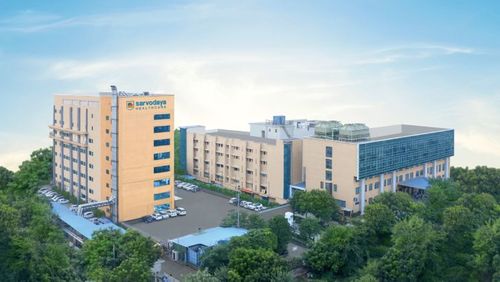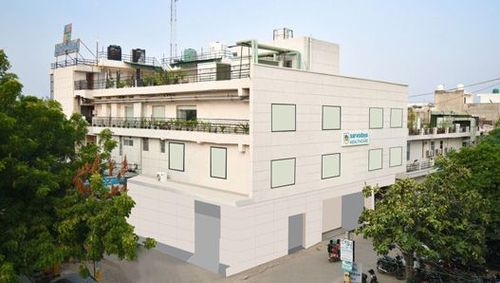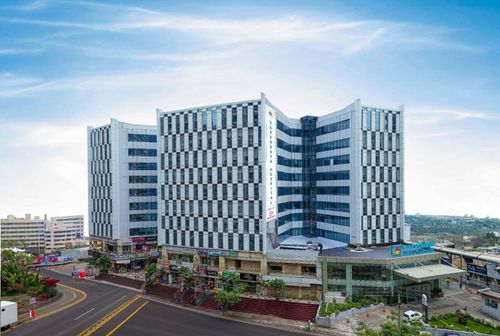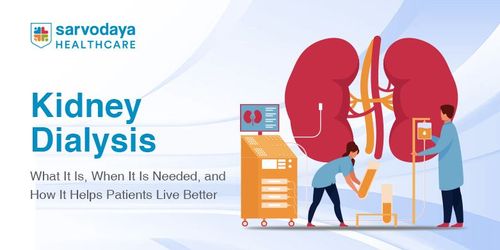Overview
Dialysis supports patients with kidney failure as a bridge to transplant or long-term care.we provide advanced kidney dialysis treatment to safely replace lost kidney function when organs can no longer filter blood, remove toxins, and maintain fluid balance.
Our Centre for Nephrology combines expert nephrologists and state-of-the-art technology, including advanced machines with sensors, blood leak detectors, and computerised monitoring. With volumetric ultrafiltration and bicarbonate haemodialysis, we ensure maximum safety, comfort, and continuous high-quality care.
Why is dialysis required?
Dialysis is required when the kidneys lose 85–90% of their function, failing to filter waste and excess fluid effectively. It is essential for acute kidney injury, providing temporary support until recovery, and for chronic kidney failure (stage 5) with a glomerular filtration rate below 15%.
Emergency indications include severe electrolyte imbalance, fluid overload, or poisoning. Persistent symptoms like nausea, fatigue, breathlessness, swelling, or irregular heart rhythms may indicate the need for dialysis, which can be provided at a trusted kidney dialysis centre in Delhi NCR, Greater Noida.
Procedure
At our dialysis treatment hospital in Faridabad, care begins with a thorough assessment, including blood tests, imaging, and evaluation by an experienced nephrologist
For haemodialysis, vascular access is created via a minor procedure, allowing efficient blood flow. During each 3–4 hour session, blood passes through a dialyser, which removes waste and excess fluid, while the machine monitors pressure and flow.
Treatment and Technology
At our dialysis centre, a leading dialysis hospital in Delhi NCR, patients receive safe and effective renal care using advanced technology and strict infection control.
Treatments include Haemodialysis, Hemodiafiltration & SLED (Sustained Low-Efficiency Dialysis), CRRT (Continuous Renal Replacement Therapy), CAPD (Continuous Ambulatory Peritoneal Dialysis), TPE & Plasmapheresis, and Hemoperfusion.
Computerised systems, ultrapure water, continuous monitoring, emergency support, and comprehensive laboratory services ensure personalised, high-quality care for optimal outcomes and patient comfort.
Benefits of Dialysis
- Improves Energy Levels: Many patients notice reduced fatigue, clearer thinking, and better overall vitality as toxins are removed.
- Reduces Swelling & Breathlessness: Helps prevent dangerous fluid buildup that affects the heart and lungs.
- Controls Blood Pressure: Plays a key role in maintaining stable blood pressure and proper electrolyte balance.
- Relieves Symptoms: Eases nausea, loss of appetite, and persistent tiredness linked to kidney failure.
- Personalised Treatment: Advanced monitoring tailors fluid removal and dialysis solution based on regular blood tests.
- Supports Active Lifestyle: Many patients can continue working, travelling, and staying active during treatment.
Pre and Post- Dialysis Lifestyle Modifications
Pre-Dialysis:
- Complete all recommended tests and consultations.
- Begin reducing sodium, potassium, and phosphorus intake.
- Track and limit daily fluid consumption as advised.
- Inform your doctor about all current medicines and supplements.
- Stay updated on hepatitis B and other recommended vaccines.
- Plan and care for dialysis access (fistula/graft) before starting.
- Prepare emotionally with counselling or support groups.
Post Dialysis
- Follow a kidney-friendly diet with controlled sodium, potassium, and phosphorus.
- Limit daily fluid intake to prevent swelling and breathlessness.
- Take all prescribed medicines and supplements as directed.
- Keep the fistula/graft clean and avoid pressure or injury.
- Stay active with light, doctor-approved exercises.
- Watch for redness, swelling, or discharge at the access site.
- Attend every scheduled dialysis session without fail.












